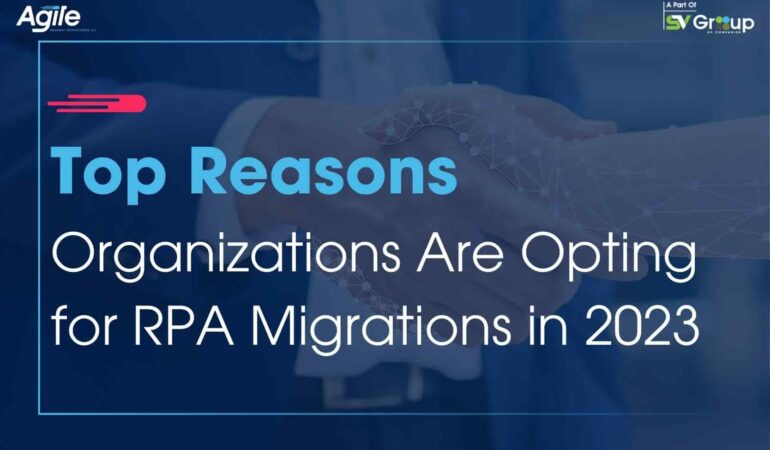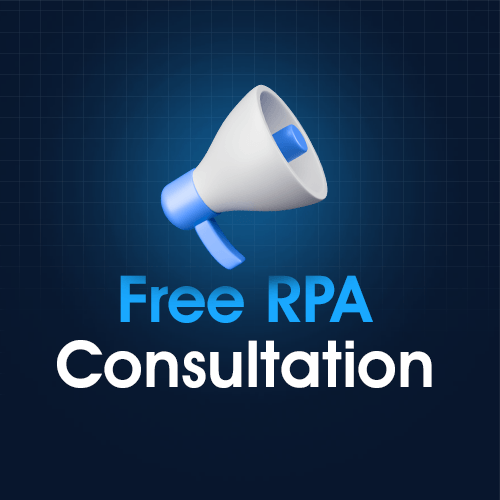Top Reasons Organisations Are Opting for RPA Migrations in 2023

What is RPA migration? A simple definition is that it involves moving your legacy RPA estate to a new platform. If you need more information on it, check out an earlier post. It talks about everything there is to know about RPA migration. You might be wondering why organisations must opt for RPA migrations since it’s a new technology.
First of all, RPA is not a new technology at all. It has been around for a while. The only reason more people are becoming familiar with it is how easy it is to design RPA solutions nowadays. Due to the no-code and low-code RPA platforms, automating business processes is much easier than before.
It is why people mistakenly believe that RPA is a new technology. There is nothing new about RPA. The only innovation in this field is intelligent automation. In other words, it combines the power of artificial intelligence and RPA to create more intelligent RPA solutions. But it doesn’t explain the need for RPA migration.
So, let’s delve into this topic in further detail.
Reasons for RPA Migration
- Reduce Costs
Whether it is a large organisation or an SME, all are motivated by profit. Therefore, the number one reason organisations are migrating to newer platforms is to reduce costs. Using legacy platforms is a substantial expense. The reason is that these platforms were made when there was little competition.
Today, there are numerous RPA platforms which are competing for the same market share. To remain competitive, they are offering numerous features, including RPA as a Service. It means there is no upfront cost associated with RPA implementation. RPA-cloud services reduce the need for investing in hardware or software.
Overall, newer platforms help reduce costs substantially. Hence, organisations are moving on from legacy platforms, regardless of how effective they are or how much the employees are skilled in them. But the cost is not the only motivating factor behind RPA migrations.
- Better Features
The second most common reason to migrate to a new platform is because of the better features. Organisations are beginning to realise that legacy systems are no longer suitable for modern requirements. Today, it is impossible to define a line between different business functions and processes.
Older platforms are not effective in organisation-wide scalability. Modern platforms like Microsoft Power Automate are designed with scalability in mind. Apart from this, new RPA platforms are intelligent. They are using artificial intelligence to improve and refine the automation process for organisations.
- Citizen Development
While RPA is not a recent technology, it is only becoming popular now because of the increasing competition and uncertainty in the business environment. Organisations are seeking new ways to remain competitive and streamline their processes. The only problem is that not every organisation has the resources to hire an RPA team.
The organisations which did have the necessary resources are finding it challenging to retain RPA teams due to the costs and employee poaching from competitors. Modern platforms are mostly no-code and low-code. It means that an individual without any technical RPA knowledge can design RPA solutions.
It is what we refer to as ‘citizen development’. To benefit from the possibility that every employee can now design an RPA solution or contribute to the process is driving organizations to newer platforms. It reduces the technical complexity and makes the entire RPA process smoother for all stakeholders.
Conclusion
Contact us if you need consultancy or technical assistance regarding your RPA migration. We specialize in multiple RPA platforms and can help you select the best one depending on your unique business requirements. If you are already in the migration process, refer to our guide on ‘Steps to Test and Deploy Migrated Automations’.

Leave A Comment